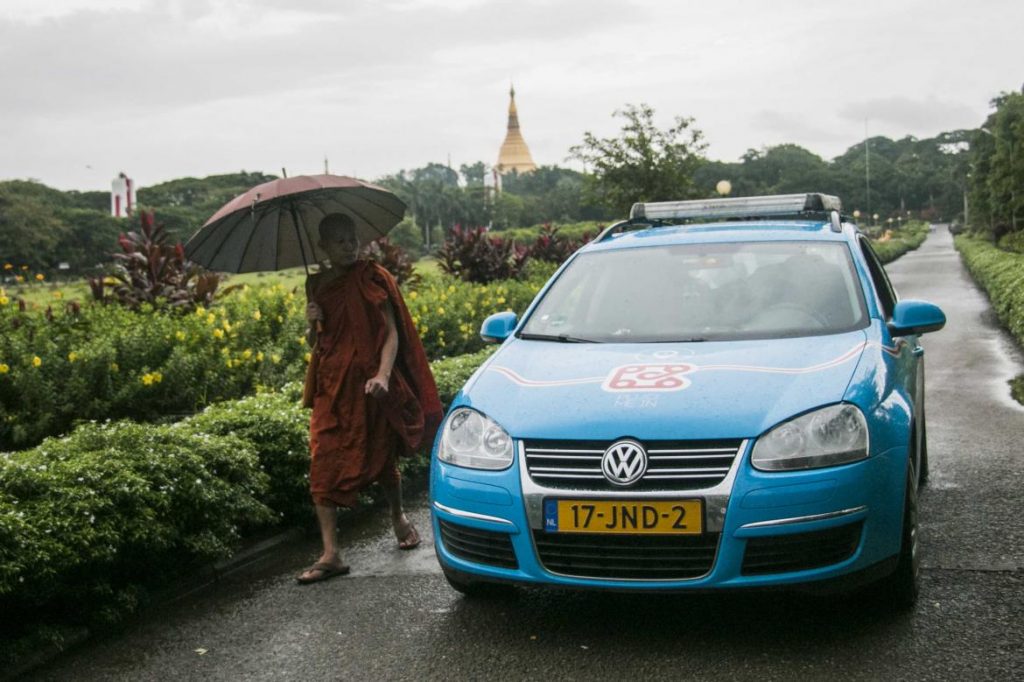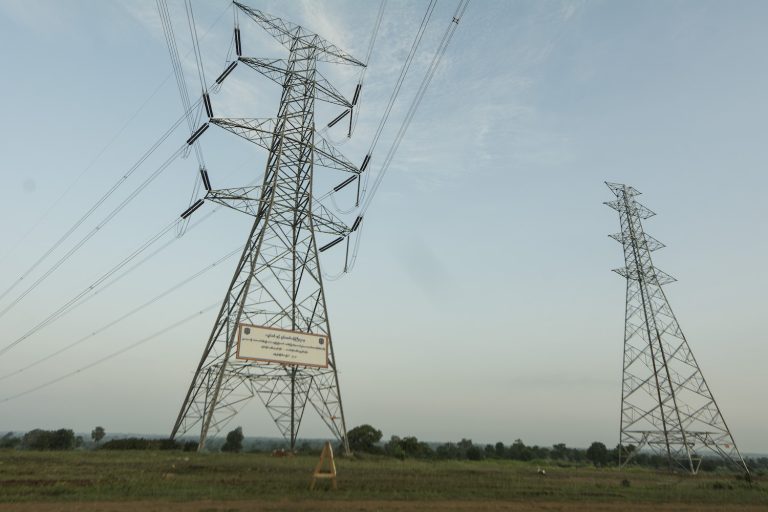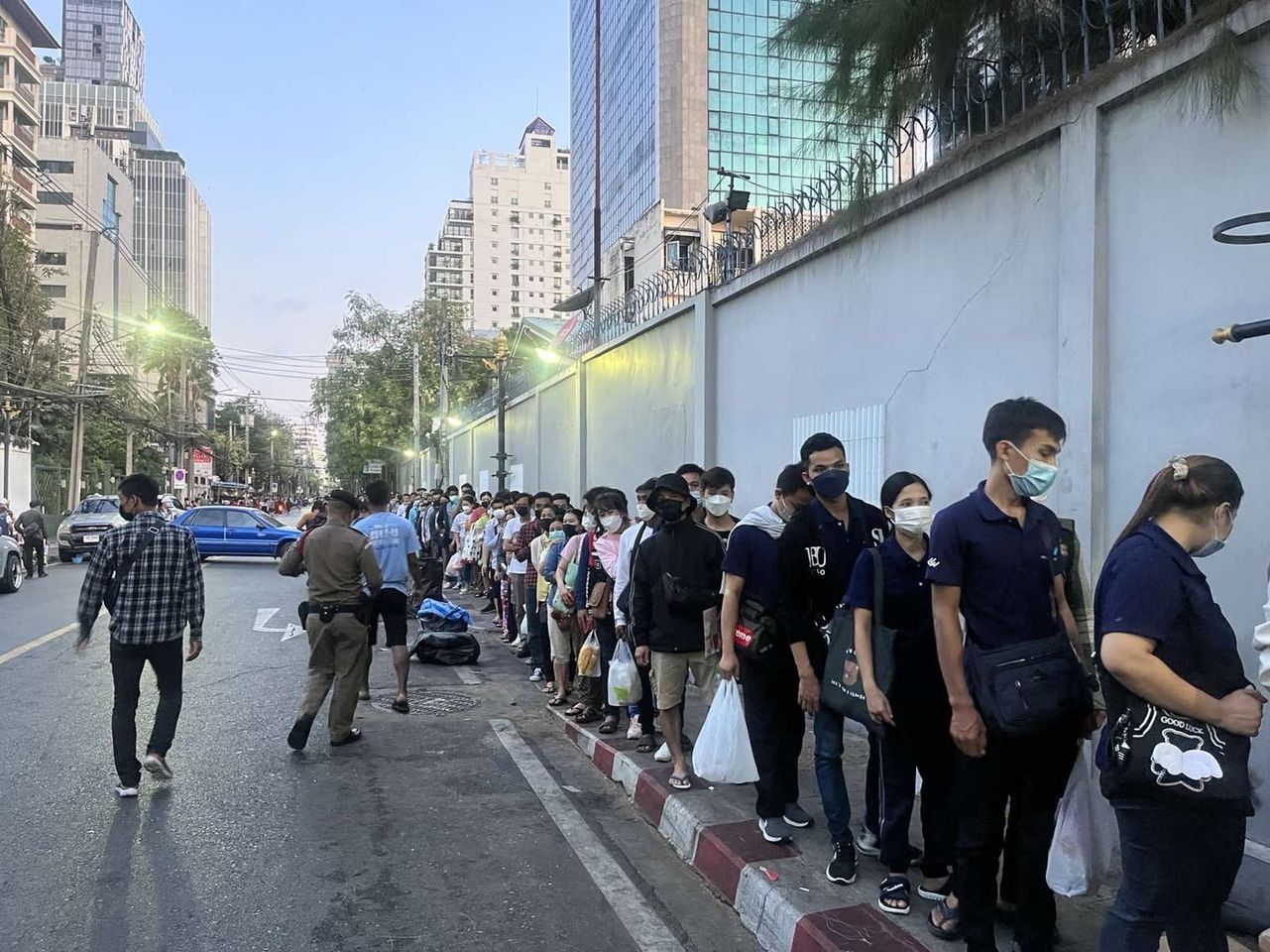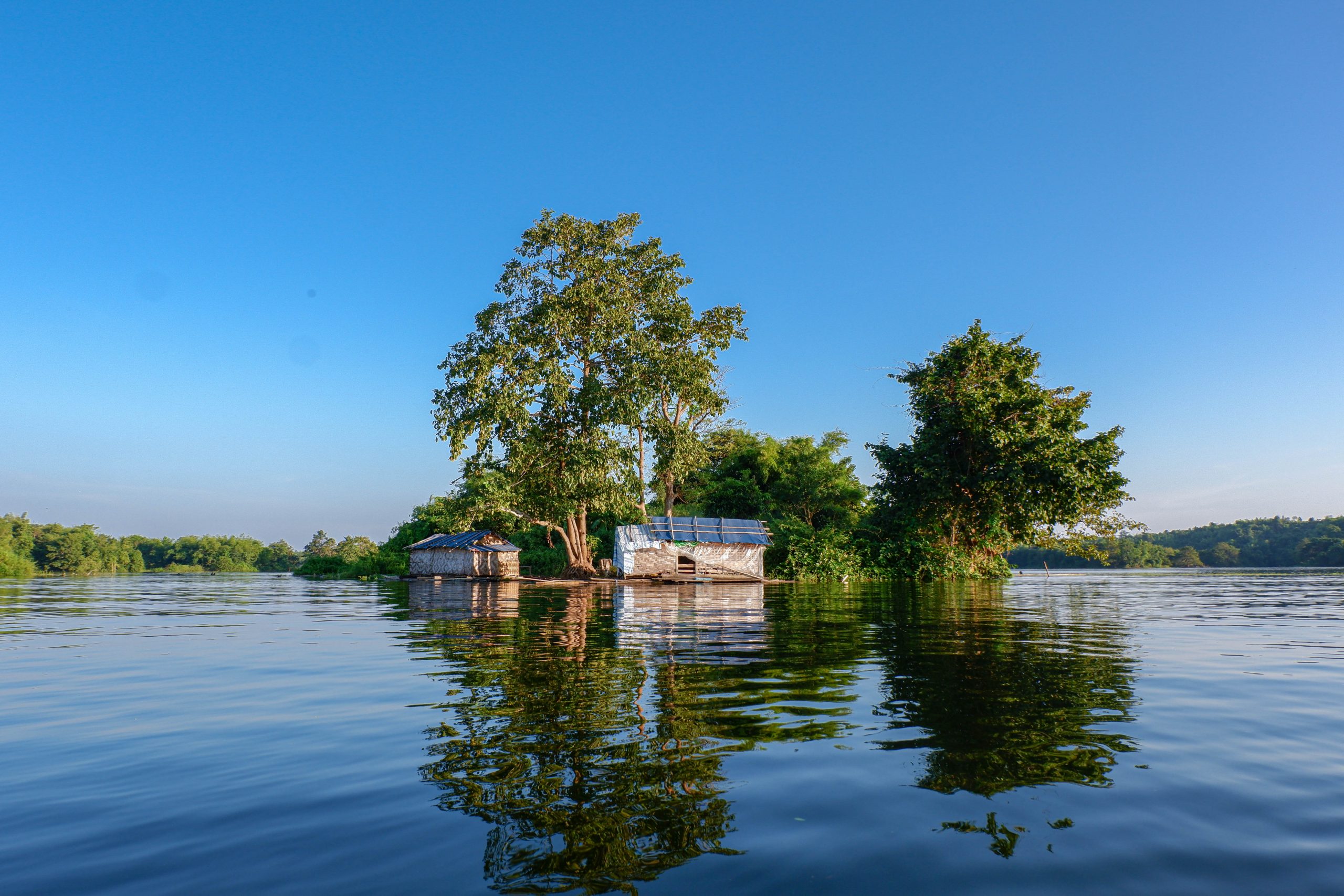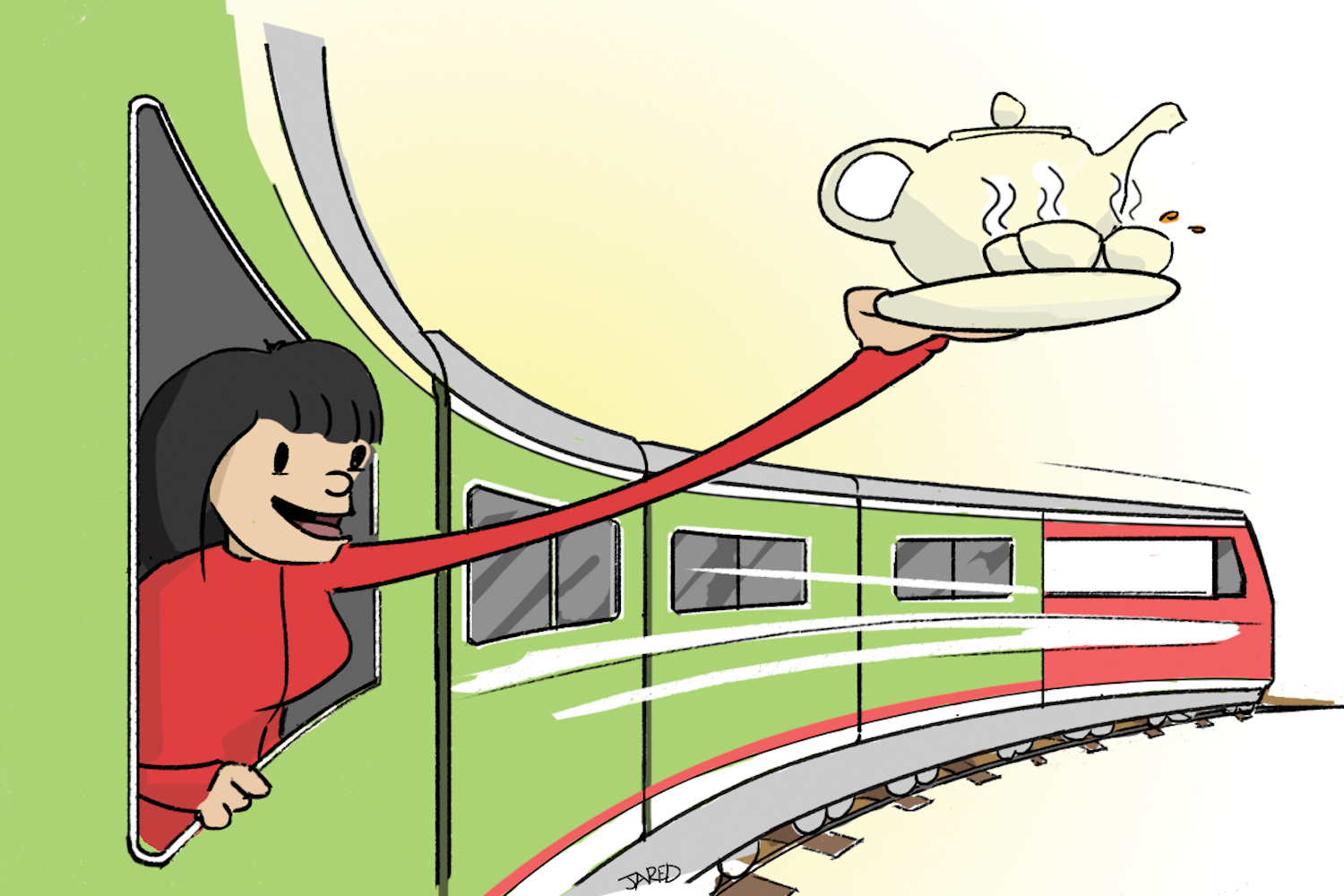A passionate convert to the cause of environmental sustainability has driven through Myanmar in an electric car on a journey that will take him across three continents.
By SING LEE | FRONTIER
MR WIEBE WAKKER travelled through Myanmar last month on a mission to promote sustainability by driving an electric car half way around the world.
The 30-year-old Dutchman arrived in Myanmar on June 14, 15 months after leaving the Netherlands. The intrepid traveller’s eventual destination is Sydney, Australia.
Entering Myanmar from India via the Iron Bridge Gate linking Moreh with Tamu in Sagaing Region, Wakker headed first to the ancient capital of Bagan to view its temples. Wakker says he was constantly amazed by the beauty of Myanmar and the sweet and humble nature of its people.
During his 11 days in Myanmar he was accompanied by a government guide “for safety reasons”, which he sometimes regretted because he was unable to stay at people’s homes, as he had done in other countries.
Support more independent journalism like this. Sign up to be a Frontier member.
On June 21, he left Yangon for Thailand en route to Malaysia, Singapore, Indonesia and Australia.
Wakker had previously spent a year backpacking in Australia, where he read many books about adventurers who had travelled the world in unique and creative ways. Inspired by their journeys, he dreamed of undertaking a similar adventure but ideas were elusive.
He returned to the Netherlands and studied event management at the University of the Arts in Utrecht. A music festival in the Netherlands sparked the flash of inspiration that led to his “Plug Me In” road trip, a graduation project initiated three years ago.
Wakker says he had regarded sustainability as a boring topic, until he read about the music festival at which footsteps on a dance floor were used to generate electricity. Wakker realised that sustainability offered opportunities to be creative in “cool” ways.
“I am a bit of a tool; I am not like a messenger,” Wakker told Frontier. “The trip is more like my personal quest to find out what is sustainability, what does it mean to me and what can I do with it.”
nswks-5.jpg
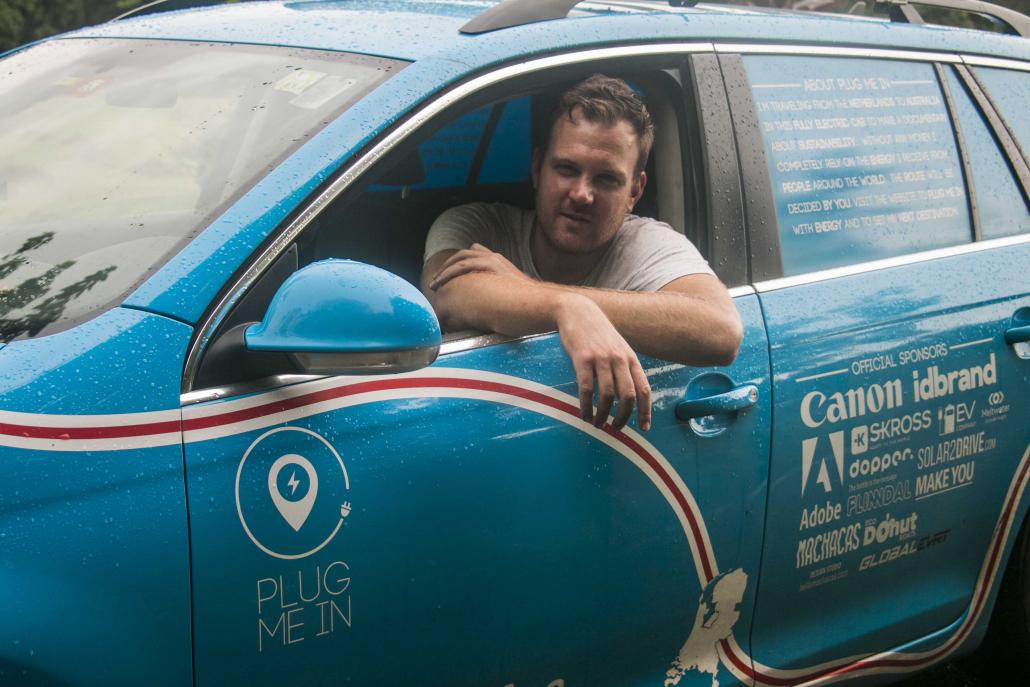
Wakker’s Volkswagen Golf was made to run on petrol but in 2009 converted to electricity. Using a 37.5 kilowatt hour battery, it has a range of 200 kilometres. (Nyein Su Wai Kyaw Soe | Frontier)
After spending 18 months promoting his “Plug Me In” project, finding sponsors and, most importantly, acquiring an electric car, Wakker left the Netherlands for his journey to the other side of the world on March 15, 2016.
His car, a Volkswagen Golf sponsored by a Dutch company, was made to run on petrol but was converted to electric power in 2009. It has a 37.5 kWh battery and a range of 200 kilometres.
Wakker says his vehicle has about double the range of a standard electric car, enabling him to enjoy more stops during his journey than would otherwise be possible and enhance the experience of each country he visits.
He almost exhausted the battery twice, in Poland and in Oman, but has never been worried about finding electricity to power up. “It is a problem when you run out of fuel because you need to find fuel, but electricity is everywhere,” he said.
Wakker has tried to post a video each day during his journey for the interest of his 1,000 YouTube subscribers. He relies on crowdfunding to cover his expenses, as well as the knowledge of his online audience about local conditions to help determine his route.
“Before I enter a country, I will say on the site, ‘Hey guys, I am going here next week,’ and people will offer help or text someone they know [who can offer assistance] at my next stop,” he said.
nswks-27.jpg
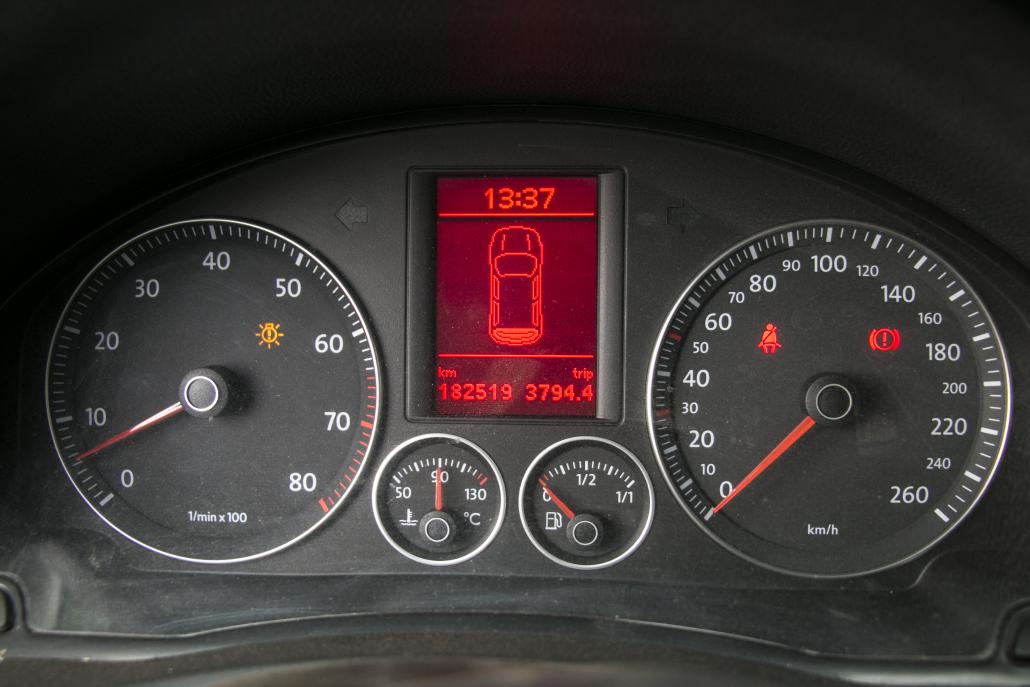
Nyein Su Wai Kyaw Soe | Frontier
When he was driving in northern India, the battery charger broke and the car’s suspension was damaged by rough roads.
With the help of locals, who built an earth ramp, Wakker was able to drive the car on to a truck to take it to the nearest town for repairs. However, when they arrived in the town they were unable to offload the car.
His online audience sprang to the rescue, sending technical drawings that showed Wakker how to build a ramp to unload the car from the truck.
He was also heartened by the assistance he received from locals when the car was being repaired.
“So many people reached out to me; they called me every hour to see if they can offer me some help,” he said.
After leaving the Netherlands, Wakker took a meandering route through Germany, Switzerland and Italy, before doing a U-turn and heading to Scandinavia, where he reached the northern tip of Norway. He then travelled through Finland, Russia, and several Eastern European countries to Turkey, Iran, and the United Arab Emirates before shipping his car across the Arabian Sea to Mumbai, the “Gateway of India”.
In Dubai, in the UAE, Wakker met a member of the royal family who is a passionate advocate of the environment and sustainability.
“He liked what I was doing very much and received me at his home for several days,” said Wakker, recalling one of the most unforgettable experiences of his journey.
By the time Wakker reached Myanmar he had been on the road for more than 460 days and had constantly reflected on sustainability. He described it as a thoughtful lifestyle, one in which people need to always consider their impact on the environment and how to limit it.
His journey through so many countries has helped him to also appreciate the difference between those that have been active in promoting sustainability and those that have not.
During his journey through India he spoke out against the use of plastic bags because they cause pollution. “But they had absolutely no idea what I was talking about,” he said.
Wakker said there was no waste disposal system in India outside cities. “People just throw their waste outside; nothing is recycled. The garbage leads to the lack of a clean water supply and many people have to buy drinking water in plastic bottles,” he said.
Wakker says the Indian government deserves credit for its efforts to promote sustainability: the country has the world’s largest solar power plant in a single location, at Kamuthi in Tamil Nadu. But he stressed that in addition to large projects it’s also crucial to raise awareness about sustainability among the general population.
Even small changes in lifestyle can make a difference, not only in terms of limiting one’s impact but also inspiring others to become more environmentally friendly and encouraging companies to introduce operating systems that are more sustainable, Wakker said.
electric_car_road_map.jpg
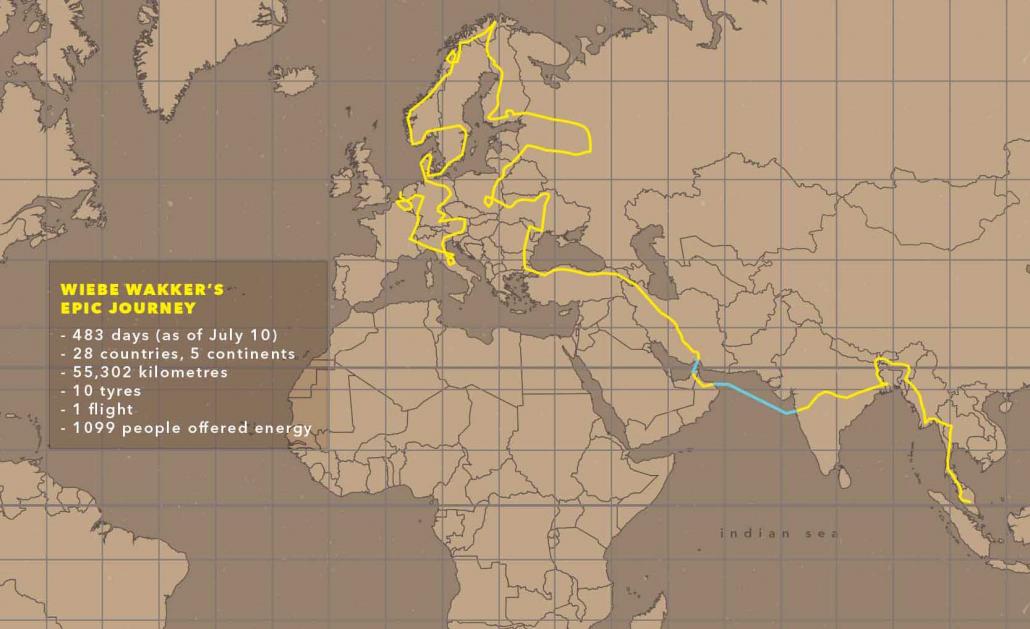
Despite the decision by President Donald Trump in early June to withdraw the United States from the Paris Agreement on tackling climate change, Wakker says the sustainable environment movement is so strong that it cannot be ignored by the US leader.
He cited the immediate response to the decision by the American states of New York, Washington and California to form the United States Climate Alliance, a bipartisan group that aims to uphold US commitments under the Paris Agreement. The alliance has since been joined by another nine states and a further 10 have pledged to support its objectives.
On June 7, the mayors of 274 American cities pledged to support the Paris Agreement, as have many US companies. The former mayor of New York City, Mr Michael Bloomberg, has promised to donate US$15 million to the UN Framework Convention on Climate Change to help fill any funding gaps filled by Trump’s decision to withdraw from the agreement.
Having travelled further in an electric car than many people would travel in their lives, Wakker is confident that the technology is ready for daily commuting. But he jokingly adds that it is “obviously not ready for travelling around the world”.
When he eventually returns to the Netherlands, Wakker says he might become involved in promoting social sustainability, an issue he finds fascinating which has received less attention than economic and environmental sustainability.
“I may also work for an electric car company, as their use is growing rapidly, but actually I do not want to work for a company,” Wakker said. “I have some ideas, but so far my only plan is to successfully complete this trip, then I will see.”


